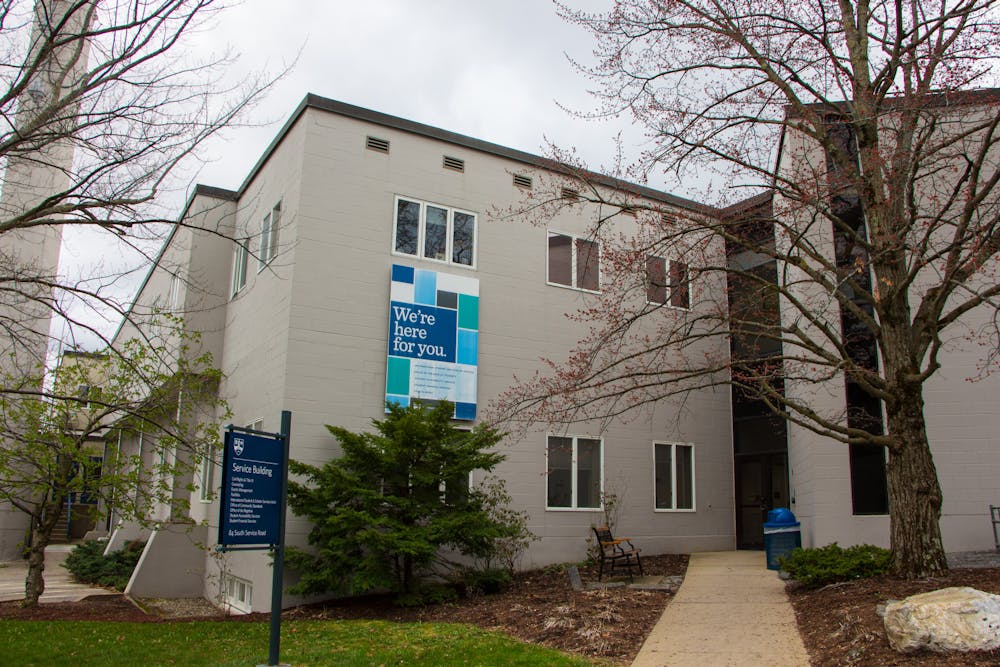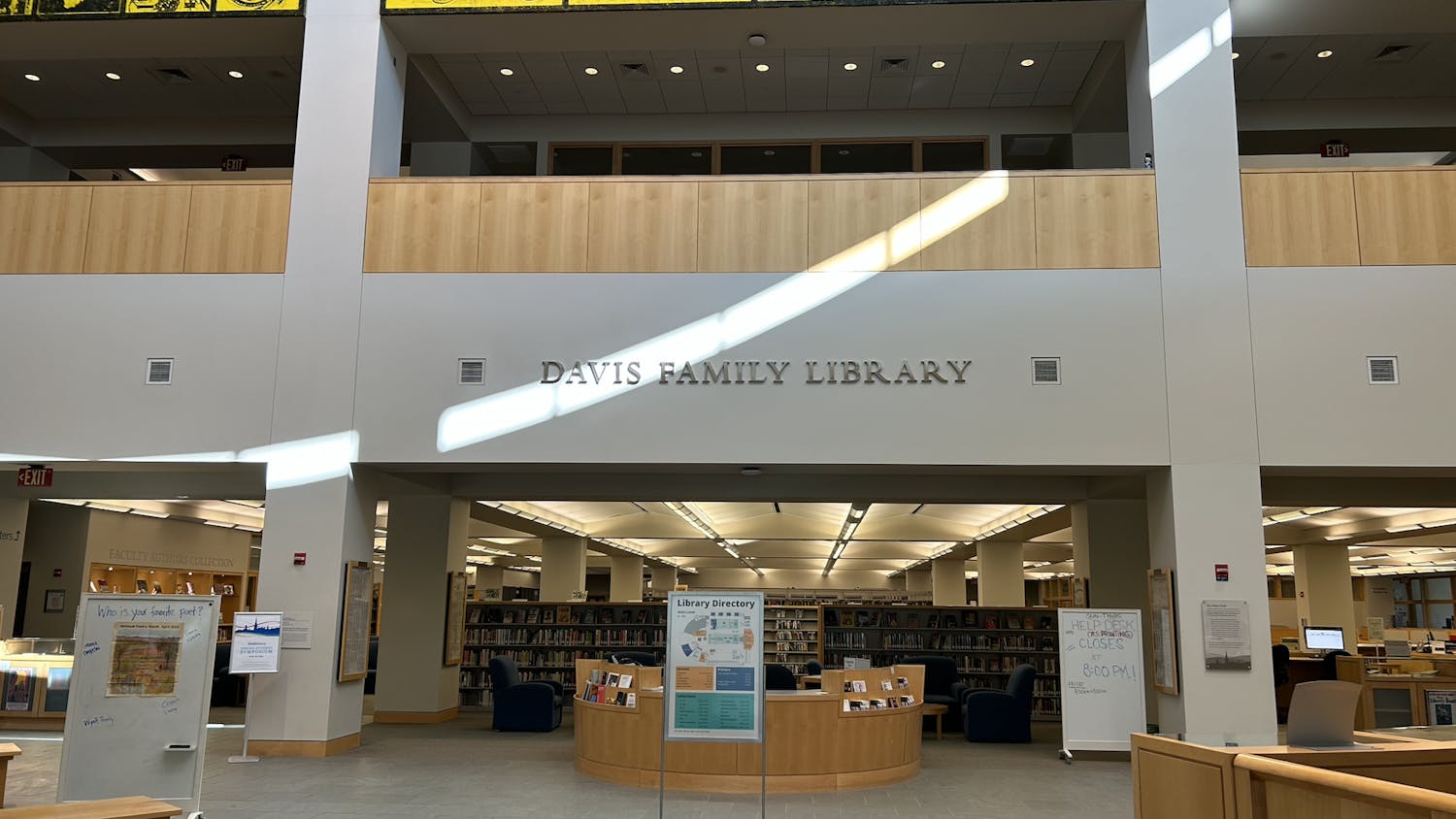The International Student and Scholar Services (ISSS) Office is currently experiencing a staffing shortage as a result of the combination of previously vacant positions and the recent medical leave of a staff member.
Assistant Director of ISSS Christy Fry has taken “a medical leave for the rest of spring term, and [ISSS is] still seeking to fill our two staff vacancies (in VT and CA),” according to Kathy Foley, associate dean and director of ISSS. Foley said that Fry’s “duties are now spread among the existing ISSS team.” However, ISSS is still facing difficulties because of the poor timing of the shortage.
Foley is referring to the large volume of new I-20s, or the Certificate of Eligibility for Nonimmigrant Student Status, and DS-2019s, or the Certificate of Eligibility for Exchange Visitor (J-1) Status, that the office issues around this time of the year to incoming international students, foreign exchange students, teaching assistants or staff and faculty. These documents allow recipients to then apply for a U.S. Visa to begin their time with the college.
On top of that, as summer approaches, international students with internships need the office to approve their Curricular Practical Training (CPT) for employment authorization, and international seniors often apply for Optional Practical Training (OPT), which allows them up to 12 months of off-campus employment, if they are interested in working in the U.S. post-graduation. The OPT process requires ISSS to assist by proofreading each student’s application to the United States Citizenship and Immigration Services and supplying a new I-20 document, a process that could take weeks even before Fry’s departure.
“[Fry’s departure] means that we are facing our peak document processing and advising period without a full team,” Foley said.
Foley’s primary concern, as noted in an email sent out to international students on April 4, is ISSS’s ability to “provide accurate and timely immigration-related guidance in a kind and caring way.”
“Because we are being pulled in many directions…we may not be able to respond as quickly as you hope,” the email said. In the email, Foley also explained that ISSS is not currently able to offer drop-in hours, the time when students typically receive travel signatures on their I-20 documents or ask questions related to navigating the U.S.. The office is now operating on an appointment-only basis. In the future, the office hopes to make informal interactions and walk-ins more available, according to Foley.
In an email to The Campus, Foley acknowledged the responsibility that ISSS bears. “ISSS is committed to supporting our international students, scholars and faculty and researchers who come to pursue their educational and/or career goals across our institution,” she said.
Foley described the office’s current priorities as tending to the most pressing needs of Middlebury’s international community.
“We are focused right now on currently enrolled students as they pursue their studies and anticipate their summer or post-graduation employment options, while also dedicating attention to our incoming students for summer and fall, our faculty, staff, and researchers and alumni, too,” Foley wrote.
However, as noted in the email sent to international students, these processes are hindered by the current personnel shortage.
“We are doing this while we’ve been managing staff vacancies in Middlebury and Monterey. One of our vacancies is for the position of ISSS Assistant Director [in Monterey],” Foley explained. “We recently relaunched our search for a qualified colleague to fill that role and hope to hire a new ISSS team member soon.”
In other measures taken to mitigate the effects of the shortage, Foley said that the team has reshuffled staff and responsibilities for certain positions. Loren Scott was promoted from International Services Specialist to a new ISSS Data Systems, Engagement and Operations Manager position in January. In the beginning of March, the office reached out to international students for casual chats with finalist candidates in an effort to fill the vacant spot. The office recently hired International Services Specialist Tracy Coné-Muccini to fill the role Scott previously held.
“Having these two roles filled will help us support students even better,” Foley said.
Immigration Specialist Janet Hulnick and Foley are also advising and supporting international undergraduates this spring. “Collectively we have been striving to assist students with their immigration-related concerns and to direct them to other institutional resources when warranted,” Foley said.
Juan Diego Riascos ’26, international student from Ecuador, shared his perspective on how ISSS interacts with students. “I feel like sometimes it’s hard to get [ISSS] to respond to emails, or get them to give back documents, but it’s been like that ever since I applied to Middlebury, so I don’t feel like there’s any change on that,” Riascos said. “I haven’t heard people being very vocal about the ISSS [situation].”
Remzije (Katerina) Kupe ’25, who is from Greece, shared how she felt the understaffing was affecting international students. “I know many people are unhappy — the UWC [United World Colleges] group chat has been going crazy,” Kupe said.
The group of international students that feels the repercussions of the understaffing most acutely, according to Kupe, are seniors who must navigate the visa system as part of their post-grad planning.




